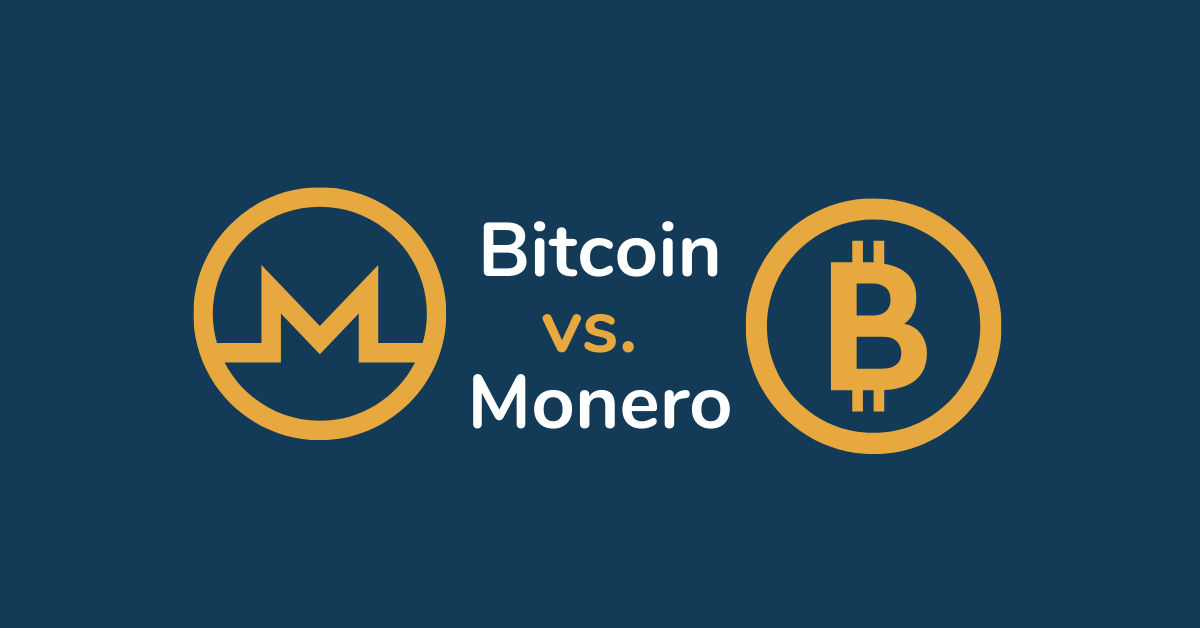Bitcoin pioneered decentralized digital currencies and remains the market leader, with the highest value and trading volume among cryptocurrencies. However, Bitcoin has some technical constraints around privacy and scalability. Monero was developed in 2014 to provide greater anonymity and untraceability for transactions. It has shown impressive growth and adoption among those who prioritize privacy. Many websites can tell people the differences and similarities between both types of digital currency in a straightforward way, you may check at https://profit-edge.com/.
This article provides a detailed comparison of the two currencies across several factors: privacy, scalability, transaction fees, adoption rates, and more. We’ll analyze the technology, use cases, and community support behind each cryptocurrency to understand their respective strengths and ideal applications. By the end, you’ll have the knowledge to determine which platform better meets your needs and priorities around decentralized digital money.

Privacy and Anonymity
One of the main differentiating factors between Monero and Bitcoin is the degree of privacy they provide. Bitcoin offers pseudonymity – transactions occur between bitcoin addresses, which are not linked to real-world identities. However, the flow of bitcoins between addresses is public record and traceable on the blockchain ledger.
In contrast, Monero utilizes innovative cryptography to obscure the sender, recipient, and amount in transactions. The project’s official website describes it as “secure, private, untraceable.” Monero implements features like:
- Stealth addresses – One-time addresses are randomly generated for each transaction to hide the recipient’s actual address
- Ring signatures – Transactions are signed by a group of possible signers, obscuring the actual sender
- Ring confidential transactions (RingCT) – The amount transferred is hidden by creating a ring of identical amounts plausible for that transaction
As a result, Monero provides near complete anonymity and untraceability for all parties and amounts involved. The opaque blockchain enhances privacy and fungibility – the equal value of each unit. This makes Monero appropriate for sensitive financial activities that prioritize anonymity.
In contrast, Bitcoin’s transparency allows third parties to potentially track recipients, amounts, and account balances on the public ledger. This reduced privacy makes Bitcoin less suitable for situations like donations, tips, and payments requesting discretion.
Scalability
Another key distinction is scalability – the ability to handle growing transaction volumes across the network over time. Bitcoin’s block size is limited to 1 megabyte, restricting throughput to approximately 3-7 transactions per second. Periods of peak demand can overload the network and confirmation times can slow to hours. The community remains divided on the best approach to scaling Bitcoin to meet future needs.
Monero utilizes a dynamic block size to improve scalability and maintain fast confirmation times. There is no fixed cap on block size or transaction throughput. Fees are calculated based on median transaction size over recent blocks rather than a fixed amount per byte. This flexible approach allows the platform to organically scale as demand increases. Transactions confirm quickly even during peak volumes.
Monero’s greater scalability makes it more suitable than Bitcoin for micropayments, point-of-sale transactions, and other high-volume uses. Bitcoin’s restrictions create challenges for adoption for small, everyday transactions. However, enhancements like the Lightning Network seek to enable off-chain Bitcoin transactions to mitigate scalability constraints.
Transaction Fees
Fees on both networks are paid to miners as an incentive to confirm transactions into blocks. Bitcoin transaction fees averaged around $2-$4 over most of 2022 but can spike during times of heavy use. Fees are based on the byte size of transactions rather than fixed amounts. Since block space is limited, senders compete by paying higher fees to prioritize confirmations when demand surges.
Monero transaction fees currently average just a few cents, which is negligible for most uses. As mentioned earlier, dynamic blocks help keep fees consistent even at scale. Senders can optionally increase fees during spikes in demand to speed confirmation times, but elevated fees are rarely needed.
Monero’s low and predictable fees make it more practical for everyday purchases, tipping content creators, and micropayments that would be burdened by Bitcoin’s higher and more volatile transaction costs.
Adoption and Acceptance
As the first widely used cryptocurrency, Bitcoin enjoys a “first mover” advantage with greater visibility, acceptance among merchants, and integration for payments. Major companies like Microsoft, AT&T, and Overstock.com allow customers to pay in Bitcoin. However, Bitcoin’s market lead has declined as other cryptocurrencies gain ground.
Monero adoption, while smaller than Bitcoin’s, is rapidly increasing. The privacy focus and fungibility make it popular for certain uses and industries. Research indicates it has captured major market share in dark web marketplaces seeking anonymity. Some VPN services, charities, and content platforms accept Monero as an alternative to Bitcoin. Integrations with apps and plugins enable direct Monero payments.
Bitcoin continues to have an advantage in merchant services, reputation, and payment volume. But Monero brings unique benefits around anonymity and fungibility that appeal to a wide user base. Both cryptocurrencies still represent a fraction of global commerce and payments, signaling room for growth.
Security

Bitcoin and Monero utilize cryptographic techniques to provide a high degree of security for transactions and prevent counterfeiting of the currency. Bitcoin has demonstrated over a decade of proven resilience against attacks and exploits from the most sophisticated hackers and organizations. This battle-testing has validated its security protections for managing digital money decentralization.
Monero inherits many of the same security fundamentals as Bitcoin but has a smaller track record since its release in 2014. However, Monero has also shown strong security over its history – it has never suffered a major breach or attack that compromised funds. Randomized algorithms, ring signatures, and stealth addresses enhance privacy while still preventing double spending or counterfeits.
Both networks rate highly for security and have monetary bases in the billions of dollars, indicating the faith users have in their cryptographic safeguards. As with any cryptocurrency, best practices around wallets and storage are recommended to prevent against theft or loss of funds.
Community and Development
Bitcoin and Monero exist as open source projects built and managed by collaborative community development. Bitcoin has the advantage of its pioneering status and is worked on by a massive, decentralized community of contributors, companies, and nonprofit foundations. There is no single entity controlling Bitcoin.
Monero also has an active community of open source developers, researchers, and engineers that guide the project’s advancement. It has maintained reliable ongoing innovation in privacy techniques like RingCT and Bulletproofs. The smaller community size is more tightly focused on the core goal of privacy.
Bitcoin’s prominence gives it an edge in developer activity and integration support. But Monero brings unique cryptographic contributions that expand the overall capabilities of cryptocurrency technologies. The option of private, anonymous money is driving much of its community engagement.
Conclusion
This comprehensive feature comparison highlights the key differences between two influential cryptocurrencies – Bitcoin and Monero. Bitcoin excels in adoption, merchant services, liquidity, community size, and first mover advantage. But Monero brings differentiated benefits around scalability, transaction fees, and privacy that appeal to a wide segment of the crypto economy.
The choice between Bitcoin vs Monero depends largely on your priorities for using cryptocurrency. Bitcoin is ideal where transparent records and maximum adoption are preferable, as with public payments, donations, and mainstream transactions. Monero provides necessary anonymity for sensitive activities that need to conceal identities, sources, or amounts transferred.
Both networks have proven security protections for managing digital money without relying on centralized intermediaries. As cryptocurrency continues growth into a mainstream financial tool, Bitcoin and Monero will target different niches in this emerging landscape. Understanding their respective strengths and applications is crucial for deciding which platform best aligns with your needs and outlook on decentralized digital currencies.
Frequently Asked Questions
What is the main difference between Bitcoin and Monero?
The main difference is that Monero provides complete anonymity for transactions, while Bitcoin transactions are pseudonymous but traceable on the public blockchain ledger. Monero obscures the sender, recipient, and amount through Ring Confidential Transactions and stealth addresses.
Which has lower transaction fees, Bitcoin or Monero?
Monero typically has significantly lower transaction fees, averaging just pennies even during peak volume. Bitcoin fees tend to run a few dollars on average but can spike much higher during high demand when the limited block space gets crowded.
Why does Monero have better scalability than Bitcoin?
Monero can dynamically adjust block sizes to handle more transactions based on volume needs. Bitcoin’s fixed 1 megabyte block size restricts throughput to 3-7 transactions per second. Monero’s flexible approach allows it to efficiently scale without delays.
What industries prefer to adopt Monero over Bitcoin?
Monero sees high adoption in industries desiring total anonymity, like dark web marketplaces, gambling sites, and related services. Charities, VPN providers, and publishers also lean toward Monero for receiving donations or payments needing privacy.
How can I purchase and use Monero for transactions?
You can buy Monero on many major crypto exchanges, store it securely in the Monero GUI wallet, and spend it at merchants accepting Monero. Tools like MoneroPay or apps like Cake Wallet make it easy to conduct private Monero transactions online or in-person.
Does Monero have development teams like Bitcoin’s?
Yes, Monero exists as an open source community project with many contributors. But development is more centralized compared to Bitcoin’s huge, fully decentralized community. The smaller group is more agile but lacks the scale of Bitcoin’s ecosystem.
Which cryptocurrency has proven better security historically?
Both Bitcoin and Monero have highly secure blockchains resistant to counterfeiting or double spending attacks. Bitcoin has a longer history dating back to 2009 without a major protocol security breach. But Monero also has demonstrated strong cryptographic defenses protecting anonymity while preventing exploits.
Can Bitcoin become more private and anonymous in the future?
Developers are working to add more privacy options, including new address types, CoinJoin mixing, and ring signatures. However, full anonymity conflicts with Bitcoin’s transparent blockchain ledger, which many supporters see as a key feature.
What are the biggest obstacles to mainstream adoption for Monero?
Regulatory uncertainty around anonymous currencies, lack of acceptance among major merchants, relative complexity to use, and concerns around illegal usage are current barriers slowing mainstream Monero adoption. But growing privacy appeals allow Monero to gain adoption in permitted contexts.
Disclosure: The articles, guides and reviews on BlowSEO covering topics like SEO, digital marketing, technology, business, finance, streaming sites, travel and more are created by experienced professionals, marketers, developers and finance experts. Our goal is to provide helpful, in-depth, and well-researched content to our readers. You can learn more about our writers and the process we follow to create quality content by visiting our About Us and Content Creation Methodology pages.

